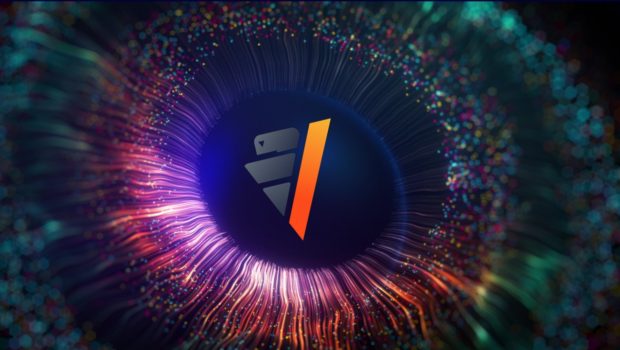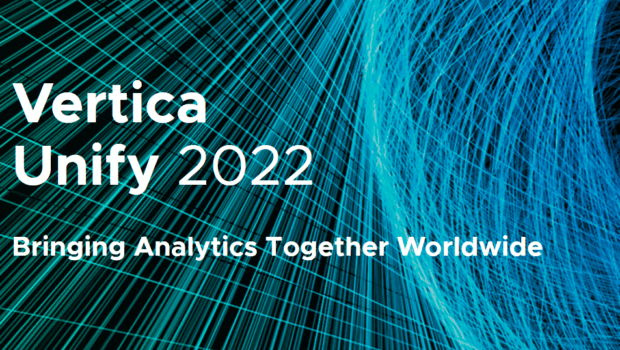
Every Vertica conference provides users and big data enthusiasts an opportunity to network with their peers in data analytics. But for attendees to find the exact Vertica engineer for questions and answers, there’s nothing like the popular Developer Lounge, which returns this year at Vertica Unify 2021. It’s the place for Vertica users to meet the developers who write the code behind the Vertica Unified Analytics Platform. Reserved for technical conversations with data engineers, data architects, data scientists, and DBAs, the Dev Lounge is available in three, 1-hour virtual sessions: Tuesday and Wednesday, 5:00 – 6:00 PM Eastern, and Thursday 9:15 – 10:15 AM Eastern.
Joy King, VP of Product and GTM Strategy, recently caught up with Vertica CTO Chuck Bear, and asked him what makes the Dev Lounge such a hit every year. You’ll find a number of reasons to stop by the Lounge yourself in Chuck’s answers below.
Joy King: From your past experience at the Vertica Big Data Conferences, why do Vertica developers enjoy participating in the Dev Lounge?
Chuck Bear: Vertica developers like any opportunity to see what others are doing with the product, with their hard work. The Developer Lounge gives them a way to meet end users, other engineers. Sometimes they get praise, which they do appreciate. And if not, they at least get a chance to be helpful, which most of our engineers also enjoy. Sometimes they get new ideas to incorporate into the product.
Joy King: Is it your observation that our developers seek out ways to make the product better, rather than focusing on what they’ve already accomplished?
Chuck Bear: We come to work every day to make a better product. But it’s good to have the confirmation you get when you can see what someone else has done with it.
Joy King: What would you say is the difference between what a customer gets from the Vertica Unify Engineering-led Sessions, and what they get from a virtual visit to the Dev Lounge?
Chuck Bear: Well, in an engineering-led session, we decide what we’re going to talk about. Of course, we try to tailor sessions to the sort of questions we think people have, but these might not address all the things that our customers have in mind. So the Dev Lounge offers an interactive, more individualized experience tailored usually to a single person, not a larger group.
Joy King: Do you see some screen sharing opportunities?
Chuck Bear: Sure. One thing about the virtual Dev Lounge is that everyone will have a laptop, and we’ll put them to good use. I’m certainly planning to use mine, to show pictures, even articles to share. We’ll be sure to have the ability to draw on the screen, since we won’t have a whiteboard. We’ll make it work.
Joy King: In some ways, the virtual environment could be better than in-person, right? An attendee can log in and show a problem in real time to the Vertica developer, rather than dealing with the classic support challenge of having to replicate the problem.
Chuck Bear: Yes. In the past, people have brought their laptops to us in the Dev Lounge. The virtual format will make that process even easier. I’ve seen cases where customers were seeking faster query throughput, and they had simply turned a few knobs in the wrong direction. We helped them understand what they had done, how to set things differently, and that yielded better throughput in just a few minutes.
Other customers have come in and gotten work done right in the Dev Lounge. One customer had a User Defined Extension (UDx) that they were motivated to write from an earlier dev session, but it wasn’t compiling. By the end of the Dev Lounge session, it was compiling. We’ve also helped customers improve their load and query plans.
Not all problems can get solved right on the spot, of course. But we strive to point customers in the right direction, and show them something new that they can work on back at their home office.
Joy King: How do engineers in the Developer Lounge handle questions that indicate a fundamental lack of Vertica knowledge? Are engineers patient? Do they enjoy teaching?
Chuck Bear: Well, we try to make sure customers understand the fundamental concepts at play in their situation. Just by having a back and forth discussion, you can usually figure out what that key misunderstanding is, then correct it. That is usually the point where we can refer them to the manual where they can get more details on what the commands should be, or whatever else they might need. No one likes to hear “Go read the manual!” So the polite way to handle this is to give customers a bit of key information, then explain where they can learn the rest on their own.
We also remind people about Vertica Academy, and all the free training that’s there. We show them where to find our forums, our blog posts. That’s because, in most cases, customers don’t have to wait until the annual conference rolls around and talk to us in the Dev Lounge. They can find so much information through these online resources, especially answers to their introductory questions.
Joy King: We have gotten some really interesting ideas through customer discussions over the years in various forms, including individual meetings, the customer advisory board, and the Dev Lounge. What ideas do you recall coming from these customer discussions that have resulted in new Vertica capabilities?
Chuck Bear: Yeah, many Vertica features have their origins in customer ideas. Flattened tables, for instance. That’s a big one, and that particular customer had thought about it for a long time. But we get smaller ideas, too – sometimes confirmation of ideas we’d been considering – from those Dev Lounge discussions. The cascading resource pools idea came from a customer interaction. A number of load options, too. Once we started seeing customers trying to use our loader, right there in the Dev Lounge, we realized we could make a number of small changes, and those made it into the next patch.
And honestly, I can’t think of a UDx that a customer was working on that we didn’t try to imitate.
Joy King: In the past, with our physical in-person Dev Lounges, we’ve had signs to make it clear where you go for certain kinds of conversations – here’s where you go to talk about Vertica in Eon Mode, or here’s where you can learn more about ML and our advanced analytic capabilities. This time, we’ll have five dedicated virtual rooms for these kinds of topics. Which do you think will be most popular?
Chuck Bear: In fact, while we did have those signs in the physical Dev Lounges, people tended to wander around to hear what was being discussed at the different locations. And we weren’t really strict about sticking to assigned topics. But to answer your question, I’m sure there’s going to be a lot of interest in machine learning, and we always get questions about loading and transforming data, because that’s the first thing people try to do when they get inspired with a new idea. And it wouldn’t surprise me if many people are interested in Kubernetes.
You know, this is a virtual event. There’s no harm in moving around from room to room, listening to all the things you likely to find out. You have nothing lose simply by listening in, even if you don’t have a specific question.
If you haven’t registered for Vertica Unify 2021, we invite you to sign up today – it’s free – and explore all the sessions and events we’ll be offering. It promises to be THE data analytics event of the year!






